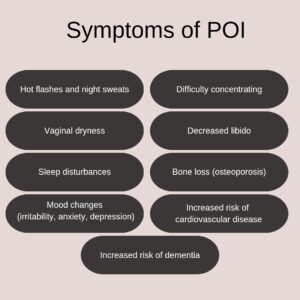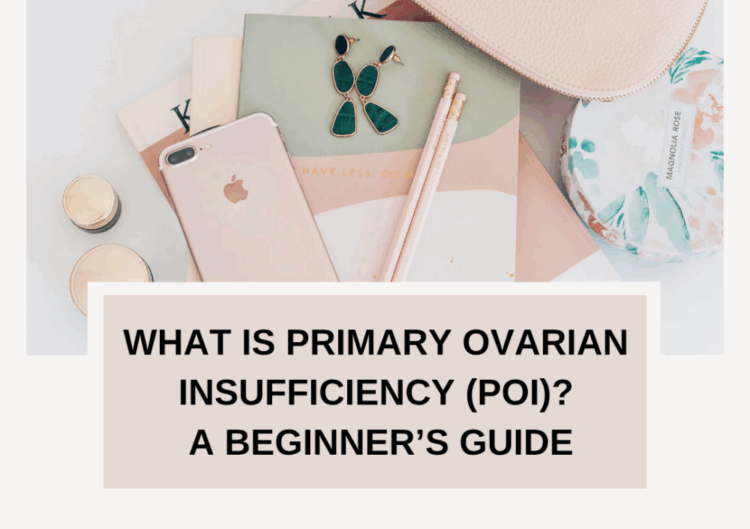Navigating the world of women’s health can sometimes feel like learning a whole new language. Terms pop up that might sound intimidating or unfamiliar. Today, we’re diving into one of those terms: Primary Ovarian Insufficiency, often referred to as POI. Let’s break down what POI is in a clear and easy-to-understand way.
Not Quite Early Menopause
One of the most common initial thoughts when hearing about POI is “early menopause.” While there are similarities, it’s important to understand the distinction. Menopause is a natural biological process that typically occurs around the age of 45-55 when a woman’s ovaries naturally stop releasing eggs and producing the hormones estrogen and progesterone.
POI, on the other hand, occurs when a woman’s ovaries stop functioning normally before the age of 40. This means the ovaries can still release eggs, but it might not happen regularly. Additionally, women with POI also have lower levels of estrogen.
Think of it this way: menopause is like the natural retirement of your ovaries, while POI is like the ovaries experiencing a premature slowdown or even stopping work much earlier than expected.
It’s important to note that POI isn’t always a complete and permanent cessation of ovarian function. Some women with POI may experience intermittent ovarian activity, meaning they might have occasional periods or even spontaneously conceive. This can make diagnosis and management a bit complex.
What are the Potential Causes of POI?
The exact cause of POI isn’t always clear, but several factors can play a role:
Genetic factors, autoimmune disorders, medical treatments, and more. Unfortunately, often the cause of POI is idiopathic, meaning the exact reason for POI cannot be identified. This seems to be the case for me.
What are the Symptoms of POI?
Because POI involves lower hormone levels, the symptoms can often mimic those of natural menopause, including:

It’s crucial to remember that experiencing some of these symptoms doesn’t automatically mean you have POI. However, if you are under 40 and experiencing significant changes in your menstrual cycle or these symptoms, it’s important to talk to your doctor. I was lucky enough to find a doctor who took my symptoms seriously and ordered blood work to figure out what was going on with me.
Why is it Important to Get a Diagnosis?
Getting a proper diagnosis of POI is essential for several reasons:
Understanding your body, managing symptoms, (Effective treatments, like Hormone Replacement Therapy can help alleviate many of the uncomfortable symptoms and protect long-term health), addressing fertility concerns, long-term health, and finding support. This website seeks to help connect others with POI and create a community of support.
Living with POI can present unique challenges, but you are not alone. This is just the beginning of understanding this condition. In future posts, we’ll dig deeper into topics like HRT, managing the emotional aspects, and building a supportive community. For more info on POI, check out our resources page.

No responses yet